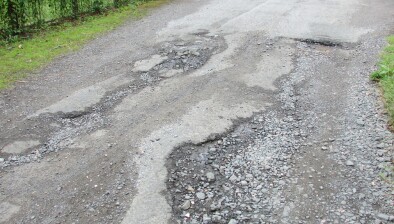And finally…new ‘superconcrete’ a “game-changer”
A super strong and greener concrete has been created at a British university with the help of wonder-material graphene, which the researchers behind it claim is twice as strong as traditional concrete and made while slashing the high carbon emissions produced by the construction sector.
Experts at Exeter University says its ‘superconcrete’ is also four times more water resistant than existing concretes, and can be used directly by the construction industry on building sites.
According to the researchers, using it would help lower carbon emissions becasue around half the normal amount of concrete would be needed for construction.
Graphene has been widely hailed as a revolutionary material due to its strength and flexibility; it is only one atom thick but stronger than steel.
To make the concrete, scientists created a graphene nano-additive of graphene dispersed in water. The additive was then used in the usual concrete-making process to enhance the performance of the cement paste by making it stronger.
Previous research using nanotechnology has focused on modifying cement, as concrete is particularly carbon intensive due to high emissions from cement during production. By using graphene in water the team hopes to create a low-cost solution which can be used for large-scale manufacturing.
Exeter University nanoscience and nanotechnology professor Monica Craciun says the technology is a “a game-changer” for the construction industry.
“Effectively you can use less concrete to get the same strength that you would have with a normal concrete,” she said. “You can use around 50 per cent less concrete; in that way you can have a significant reduction of carbon emissions.”
Craciun said the team is working towards securing a new British Standard for the concrete, which should be ready for commercialised production by the end of the year.
“It’s not expensive because the process is very simple; it is basically similar to a kitchen blender where you put graphite, water and soap molecules and you produce graphene,” she added.
Reducing construction’s carbon footprint has become increasingly important for civil engineers; the infrastructure industry is responsible for roughly 16% of the UK’s carbon emissions and influences a further 37 per cent.

















